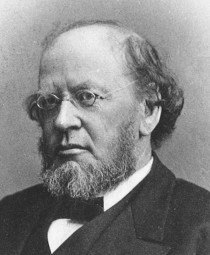Friday, January 22, 2010
A. A. Hodge on True versus Hypocritical Assurance
"Although hypocrites and other unregenerate men may vainly deceive themselves with false hopes and carnal presumptions of being in the favor of God and estate of salvation, which hope of theirs shall perish, yet such as truly believe in the Lord Jesus and love him in sincerity, endeavoring to walk in all good conscience before him, may in this life be certainly assured that they are in a state of grace and may rejoice in the hope of the glory of God, which hope shall never make them ashamed."
- Westminster Confession of Faith, Chapter XVIII, Section 1
In his commentary on this passage from the Confession, Archibald Alexander Hodge, the son of the famous Princeton Professor Charles Hodge, makes some astute remarks on assurance of faith. Namely, I am here referring to his marks distinguishing the sound assurance of the true believer from the self-deception of the hypocrite.
Hodge comments: "That unregenerate men, beguiled by the natural desire for happiness, flattered by self-love, and betrayed by a spirit of self-righteousness and self-confidence, should frequently indulge an unfounded assurance of their gracious condition, is rendered antecedently probable from what we know of human nature, and rendered certain as a fact from common observation and from the declarations of Scripture. Micah 3:11, Job 7:13-14."
In contrast, Hodge continues, "True assurance, however, may be distinguished from that which is false by the following tests: 1) True assurance begets unfeigned humility; false assurance begets spiritual pride (I Cor. 15:10, Gal. 6:14). 2). The true leads to increased diligence in the practice of holiness; the false leads to sloth and self-indulgence (Ps. 51:12-13, 19). 3). The true leads to candid self-examination and to a desire to be searched and corrected by God; the false leads to a disposition to be satisfied with appearance and to avoid accurate investigation (Ps. 139:23-24). 4). The true leads to constant aspirations after more-intimate fellowship with God (I Jn 3:2-3)."
Labels:
1 corinthians,
1 john,
assurance,
galatians,
hypocrisy,
job,
micah,
psalms,
westminster confession of faith
Subscribe to:
Post Comments (Atom)





No comments:
Post a Comment